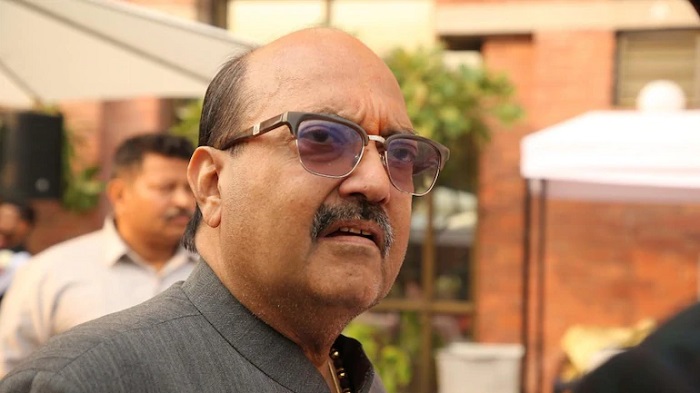Chennai, Jan 19: Amid ongoing nationwide protests against Citizenship (Amendment) Act, 2019, finance minister Nirmala Sitharaman on Sunday said that as many as 2838 people from Pakistan were given citizenship during the last six years.
"In the last six years, as many as 2838 Pakistani refugees, 914 Afghan refugees, 172 Bangladeshi refugees including Muslims have been given Indian citizenship. From 1964 to 2008, more than 4,00,000 Tamils (from Sri Lanka) have been given Indian citizenship," Sitharaman said at 'Programme on Citizenship (Amendment) Act, 2019' event here.
She added, "Till 2014, over 566 Muslims from Pakistan, Bangladesh and Afghanistan were given Indian citizenship. During 2016-18 under Modi government, around 1595 Pakistani migrants and 391 Afghanistani Muslims were given Indian citizenship."
The minister, further, said, "It was also during the same period in 2016, that Adnan Sami was given Indian citizenship, this is an example."
Sitharaman added that people who came from East Pakistan have been settled at various camps in the country.
"They are still there and it's been 50-60 years now. If you visit these camps, your heart will cry. The situation is the same with Sri Lankan refugees who continue to live in camps. They're barred from getting basic facilities," she said.
Asserting that the government is not snatching away anyone's citizenship, the BJP leader said: "This Citizenship (Amendment) Act is an attempt to provide people with a better life. We are not snatching away anyone's citizenship, we are only providing them that."
"The National Population Register (NPR) will be updated every 10 years and is not involved with the National Register of Citizens (NRC). Some are involved in raising false allegations and triggering people unnecessarily without any base," she added.






Comments
Hello Madam,
What Are you ?? Are you a Finance Minister or External Affairs Minister ??
when someone asked about the economy which well related to your ministry you won't even open your mouth,
but now you are talking about a matter which is not at all your business...
What a pefect figure given by our short time finance minister. Hope she wil feed them from her person income wthout ONION.
Stupid, dont know even what they talk.
It is not snatching anybody's nationality. You dont have right to do it.
The subject is not snatching, the subject is disccimination while giving nationality.
Add new comment